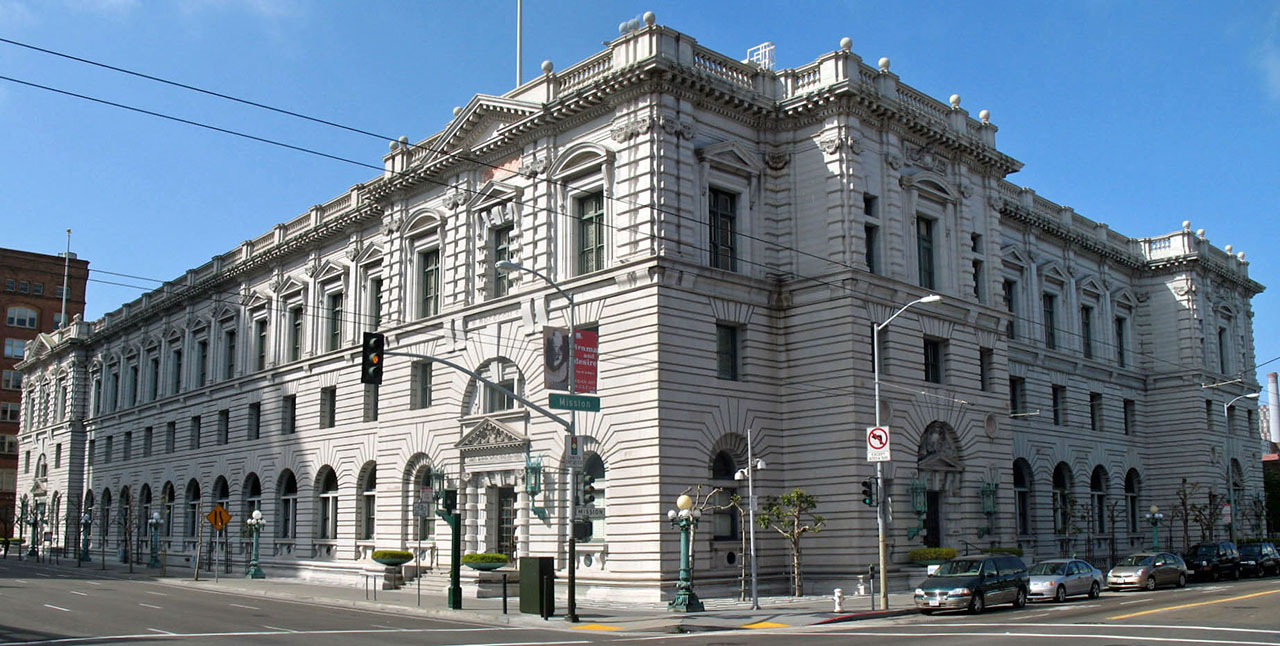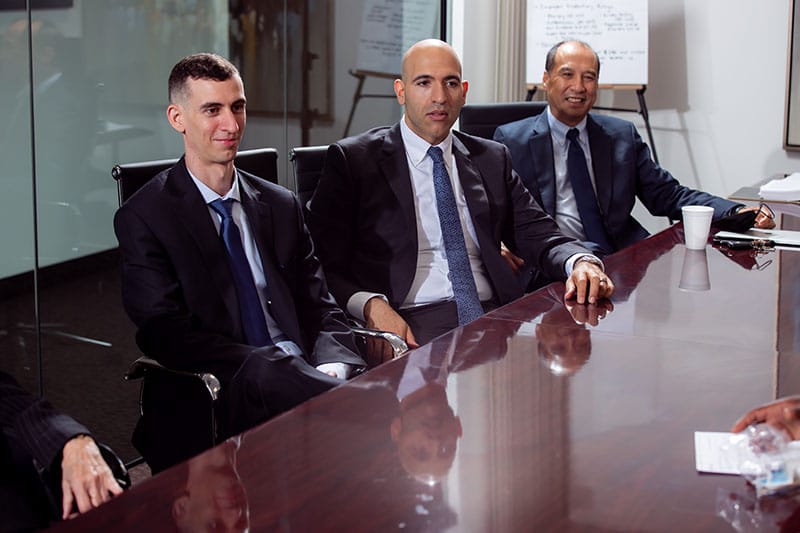How to Win an Appeal in San Francisco

Your attorney must do more than prove you were not guilty in order to win your criminal appeal. They must show that there was a material mistake made at the original trial, and that mistake must warrant reconsideration of your conviction.
Award-winning San Francisco criminal appeals attorney Aaron Spolin has years of experience and a track record of success with criminal appeals and writs. He knows what winning an appeal means for you and your family. Mr. Spolin and his team at Spolin Law P.C. will do everything possible to get you a positive outcome.
Mr. Spolin explains the steps that his appeals law firm, Spolin Law P.C., takes in fighting an appeal:
- Review the Case for Errors: An important part of an appeal is finding material errors that occurred during your trial. Spolin Law P.C. will do that by scrutinizing exactly what happened in front of the judge or at any other stage of your case. Appeals are won by finding mistakes made by previous lawyers, improper statements by the judge or prosecutor, and legal errors that made it into trial. We will determine if there was a factual or legal mistake that violated your rights and make a strong argument on appeal.
- Develop an Argument Based on the Law: When you are appealing a criminal case, your arguments must be based on an error in court procedure and state or federal law, depending on the venue in which your case is being heard. If you were convicted in a California Superior Court, then your arguments will be based on state law. If your case was heard in the U.S. District Court, then your arguments will be based on federal laws.
- Establish Your Full or Partial Innocence: Although your appeal will present how the lower court made errors in your case, you can also make an emotional plea to the appellate judge. If you are innocent, your criminal appeals lawyer will work to prove you are not guilty and the legal system failed in convicting you.
- Getting You Released from Imprisonment: You may be able to go free while your appeal is pending. The San Francisco appeal lawyers at Spolin Law P.C. make a request to the judge and seek your release.
The experienced criminal appeals attorneys at Spolin Law P.C. take these steps to achieve your goals in a criminal appeal case. To learn more about how we can help you, contact Mr. Spolin and his team at (310) 424-5816.
- How to Win an Appeal in General
- San Francisco Appellate Courthouses
- Deadlines for First District and Ninth Circuit Appeals
- Effective Arguments in Overturning Convictions
- The Importance of an Appeals Lawyer
Criminal Appeal Courthouses in San Francisco

Your original case may have been heard in either the San Francisco County Superior Court Criminal Division (for state charges) or U.S. District Court for the Northern District of California (for federal charges). If you were convicted and disagree with the outcome of your case, you will appeal to a higher-level court.
First District Court of Appeal (for Criminal Appeals)
A Court of Appeal is an intermediate court of review. They hear cases on appealable orders and judgments from a Superior Court. However, in cases where the death penalty was the sentence, the Supreme Court has jurisdiction.
The 1st District Court of Appeal is located in San Francisco and serves the following 12 Northern California counties: Alameda, Contra Costa, Del Norte, Humboldt, Lake, Marin, Mendocino, Napa, San Francisco, San Mateo, Solano, and Sonoma. The 20 justices that serve this district court review more than 2,000 appeal cases per year.
The First District Court of Appeal in San Francisco can be reached at the following:
Court of Appeal
First Appellate District
350 McAllister Street
San Francisco, CA 94102-7421
Phone: (415) 865-7300
The courthouse can also be accessed from the Hiram W. Johnson State Office Building, which has an entrance on 455 Golden Gate Avenue.
Some of the busiest courthouses in the San Francisco area that feed into the First District Court of Appeal include the San Francisco Hall of Justice, Fremont Hall of Justice, Wakefield Taylor Courthouse, Humboldt County Courthouse, Court of Lake County Lakeport Division, and the Santa Rosa Hall of Justice.
Ninth Circuit Court of Appeal (for Criminal Appeals)
A federal criminal conviction in San Francisco may be appealed to the U.S. Circuit Court for the Ninth Circuit. The Ninth Circuit encompasses several states and territories, including California, Hawaii, Alaska, Washington, Oregon, Nevada, Idaho, Montana, Arizona, and Guam. There is more than one courthouse located in that area.
If you appeal a criminal case from the U.S. District Court for the Northern District of California in San Francisco, your case will be heard in the United States Circuit Courthouse in San Francisco, located at:
The James R. Browning Courthouse
95 7th Street
San Francisco, CA 94103
Phone: (415) 355-8000
There is no right to appeal a Circuit Court decision to the Supreme Court of the United States; however, you can request that they review a judgment by petitioning for a writ of certiorari. If the Supreme Court makes a decision on your case, that finding is final and binding over all state and federal courts.
Some of the other Federal District Courts that feed into the Ninth Circuit Court of Appeal include the district courts for the Central, Southern, and Eastern Districts of California, as well as those for the nearby Western States and the territory of Guam.
- How to Win an Appeal in General
- San Francisco Appellate Courthouses
- Deadlines for First District and Ninth Circuit Appeals
- Effective Arguments in Overturning Convictions
- The Importance of an Appeals Lawyer
State & Federal Appeal Deadlines
It’s important to find an appeals lawyer quickly if you are wrongfully convicted of a crime. There are deadlines within which your appeal and other documents must be filed. If you don’t act immediately, your appeal may be dismissed.
Ninth Circuit Court of Appeals (San Francisco)
In the Ninth Circuit Court of Appeals, located in San Francisco, you must file a Notice of Appeal within 14 days of the entry of the final judgment in your original case. This deadline may be extended for up to 30 days by the district court judge in certain circumstances, such as for good cause or excusable negligence. While the Ninth Circuit Court of Appeals handles federal appeals, the Notice of Appeal is typically filed with the Federal District Court in the Northern District of California. This court is located at:
Phillip Burton Federal Building & United States Courthouse
450 Golden Gate Avenue
San Francisco, CA 94102
Phone: (415) 522-2000
There are entrances to the U.S. District Courthouse on both Golden Gate Avenue and from Turk Street.
Post-conviction motions also have deadlines. Many must be made within 14 days of your conviction. Some of those motions and petitions include:
- Motion for Judgment of Acquittal
- Motion for Arrest of Judgment
- Motion for a New Trial
- Petition for Rehearing or Rehearing En Banc
If your motions or petitions are not granted, then your San Francisco criminal appeals lawyer can file a Notice of Appeal in your case.
First District Court of Appeals (San Francisco)
The First District Court of Appeals, located in San Francisco, also requires a Notice of Appeal to be filed within a short period of time after a final judgment. If you were convicted of a felony in San Francisco County or surrounding counties, then you have 60 days to file a Notice of Appeal. Similar to federal cases — where the Notice of Appeal is filed with the lower court — it should be filed with the San Francisco Superior Court.
Misdemeanor convictions have a 30-day deadline within which you must file a Notice of Appeal with the Criminal Department of the court in which your case was heard.
Deadlines for a Writ of Habeas Corpus
A writ of habeas corpus may be another appeal option in your case. However, it has a very different deadline from the traditional types of appeals discussed above. If you were convicted in San Francisco County or in a nearby county, then a writ of habeas corpus would be filed in either the Federal District Court for the Northern District of California or in the San Francisco Superior Court. Federal writs must be filed within one year and 90 days of losing a case in the California Supreme Court. State writs of habeas corpus must be filed within a “reasonable time” after discovering the issue that is to be raised in the writ (or after you should have discovered the issue).
Writs of habeas corpus are extremely complex appeals and require you to meet specific elements with your arguments. You should contact an attorney if you are considering this option. The legal team at Spolin Law P.C is available at (310) 424-5816.
Release from Incarceration During the Appeals Process
The criminal appeals process can take years to get through and achieve a successful outcome. While you are waiting on the court to consider your appeal, Spolin Law P.C. will request that you are released from prison. By filing a motion seeking your release on a bail bond, you may be able to remain free while your appeal is pending.
The court will consider the following factors when determining whether bail is appropriate in your case:
- The seriousness of your conviction
- The length of your sentence
- Your criminal history
- Your ties to the community
- Your ability and likelihood to travel and become a fugitive
- The risk to public safety
You do not have a constitutional right to be released while your case is pending, but it is an option we can pursue.
- How to Win an Appeal in General
- San Francisco Appellate Courthouses
- Deadlines for First District and Ninth Circuit Appeals
- Effective Arguments in Overturning Convictions
- The Importance of an Appeals Lawyer
Effective Arguments to Overturn Convictions

There are thousands of arguments that can be made in criminal appeals cases. In fact, more than one argument might apply to a single case. That’s why it’s important to work with San Francisco criminal appeal lawyers who will find everything that supports your appeal.
Some of the arguments that Spolin Law P.C. has found to be effective include:
- Ineffective Assistance of Counsel
- Improperly Admitted Character Evidence
- Improper Shift of the Burden of Proof by the Prosecutor
- Improper Jury Instructions
- Failure of Judge to Provide Required Jury Instructions
- Witness was Improperly Excluded
- Cross Examination was Improperly Limited
- Defendant’s Statement or Confession was Improperly Admitted
- Denied Your Choice of Attorney
- Denied Right of Self Representation
- Suppression Motion was Improperly Denied
- Lack of Probable Cause
- Lack of Sufficient Evidence for a Conviction
- Faulty Line-Up was Improperly Admitted
- Defendant’s Fifth Amendment Right Against Self-Incrimination Was Violated
- Violation of Double Jeopardy
- Violation of a Right to Speedy Trial
- Case was Incorrectly Joined With Co-Defendant
- Jury Trial Was Improperly Denied
- Mental Incompetence
- Overly Broad Statute Defining Offense is Unconstitutional
- Violation of Defendant’s First Amendment Rights
- Improperly Closed Courtroom
- Someone Improperly Interfered With Jury Deliberations
- Defendant’s Innocence
- Sentencing Mistake
- Violation of the Statute of Limitations
- Lack of Subject Matter Jurisdiction
- Change of Venue Motion was Improperly Denied
- Defendant Was Improperly Restrained in Front of Jury
- Jury Allowed to See Shackles, Handcuffs, or Jail Clothes of Defendant
- Defendant’s Exclusion From the Courtroom During Parts of the Trial
- Judge’s Communications With Jury Without Defense Counsel Present
- Judge’s Improper Admission of Confession Following Lack of Miranda Warnings
- Judge’s Improper Ruling on Sufficiency of Warrant Motion
- Judge’s Improper Ruling on Identification Procedures Motion
- Denied Defense Counsel at Critical Stages of Court Proceedings
- Trial Attorney’s Conflict of Interest
- Undue Prejudice by Pretrial or Trial Publicity
- Improper Challenge of a Juror Due to Juror’s Race/Gender/etc. by Prosecutor
- Improper Ruling on Expert Testimony
- Improper or Improperly Filled Out Jury Verdict Form
- “Golden Rule” Violation by Prosecutor
- Failure to Disclose Exculpatory Evidence by Prosecutor
- Failure to Disclose Relevant Information About a Witness by Prosecutor
The Appeals Process for San Francisco County Convictions
If you are convicted in state court in San Francisco County, the traditional appeals process is as follows. (The federal appeals process will be similar; however, they will take place at the Ninth Circuit Court of Appeal.)
Step 1: File a Notice of Appeal in Superior Court
A Notice of Appeal states your intention to appeal the final outcome of your case. It must be submitted by a specific deadline established by law. The notice is typically filed with the court where you were convicted, not with the higher-level court that will potentially hear your appeal.
Step 2: Obtain a Trial Transcript
After your trial, the court reporter of the Superior Court will prepare a transcript of your case. It will include testimony and evidence that was submitted during your trial. You will need to obtain the reporter’s transcript to review it and find any errors that occurred during your trial. Transcripts are then sent to the Court of Appeal. All felony appeals out of San Francisco County are sent to the First District Court of Appeal, which is also located in San Francisco.
Step 3: Submit an Opening Brief
The Court of Appeal will establish a schedule for when briefs must be submitted. Your opening brief, which explains the errors that occurred at your trial, will be due within 45 days. The opening brief must explain why the trial court’s judgment was wrong, including a material legal mistake that was made.
Step 4: The Respondent’s Brief
The government will also likely file a brief in response to your opening brief. They may argue that there were no legal mistakes and the trial court’s judgment should be affirmed.
Step 5: Reply Brief
You may file a reply brief in response to the government’s brief. It may directly address any arguments made by the government and further explain the errors that were made. It may not present new factual evidence.
Step 6: Oral Arguments
Oral arguments do not occur in every case; however, either party may request the. The court’s panel of three judges may also require them. During oral arguments, the attorneys discuss the arguments made in the briefs that have been filed with the court. The judges may also ask questions to get a better understanding of the situation.
Step 7: The Appeal Decision
After briefs have been submitted and oral arguments have been heard, the panel of judges will make a decision. They may affirm the trial court’s judgment, reverse the decision, or remand your case back to the trial court. If your case is remanded, you will have an opportunity to present your arguments at a new trial.
Step 8: Requesting a Rehearing
If the outcome of the appellate court’s decision is not favorable, then you can ask for a rehearing within 14 days. You should do this if you think their decision was based on an issue not presented in the briefs or their decision left out a material fact or issue.
Step 9: Request a Review
If your appeal presents a novel issue of law or there is a constitutional violation, you can file a petition for a higher court to review your case. You may file an appeal to the Supreme Court or file a petition for a Writ of Habeas Corpus.
The Writ Process
The writ process is similar to the appeals process, but there are some differences. Your San Francisco criminal defense attorney can file a petition for a writ if there is an issue that cannot be handled with a typical appeal.
A writ is a command by a higher court to a lower court or another government party. Your attorney does not write or file writs. Instead, you file a petition for a writ, which asks the higher court to hand down a writ to a lower court, government agency, or official.
Common writs that San Francisco appeals attorney Aaron Spolin uses in cases include the following:
- Writ of Habeas Corpus — This writ challenges a defendant’s incarceration.
- Writ of Mandamus — This writ tells a party to perform a certain act.
- Writ of Prohibition — This writ stops a party from performing certain acts.
- Writ of Quo Warranto — This writ challenges a party’s right to hold public office.
- Writ of Error Coram Nobis — This writ allows the court to correct a material mistake that was not part of the trial record.
- Writ of Certiorari — This writ enables appellate courts to hear cases from lower courts. When your lawyer takes your case to the Supreme Court, a petition for this type of writ is made.
- How to Win an Appeal in General
- San Francisco Appellate Courthouses
- Deadlines for First District and Ninth Circuit Appeals
- Effective Arguments in Overturning Convictions
- The Importance of an Appeals Lawyer
The Importance of a San Francisco Appeals Lawyer

There are many criminal defense lawyers in San Francisco, but few of them successfully appeal cases to higher-level courts. Criminal appeals require carefully developed strategies that show there was a material mistake at the trial court level. Without making strong arguments, your appeal may be denied.
Award-winning San Francisco criminal appeals attorney Aaron Spolin has a track record of success. Although prior success does not guarantee it in every case, it does exhibit the knowledge and experience that Mr. Spolin and his team have with in-depth appeals. Mr. Spolin fights to win every case with the following steps:
- Find errors that occurred at the trial court level.
- Explain the rights violations that occurred.
- Argue to overturn your conviction or reduce your sentence.
- Fight to win every case.
To speak with one of our San Francisco criminal appeals attorneys at Spolin Law P.C., call us at (310) 424-5816.
